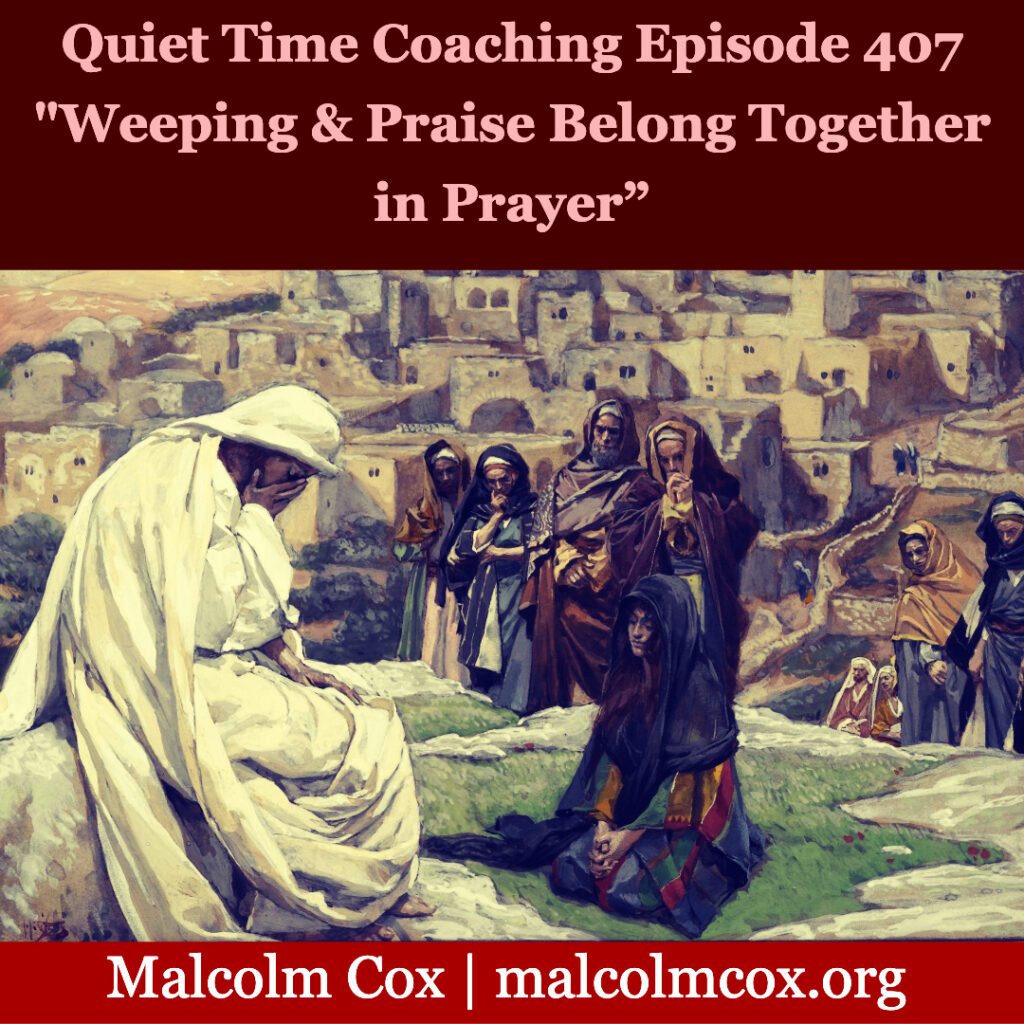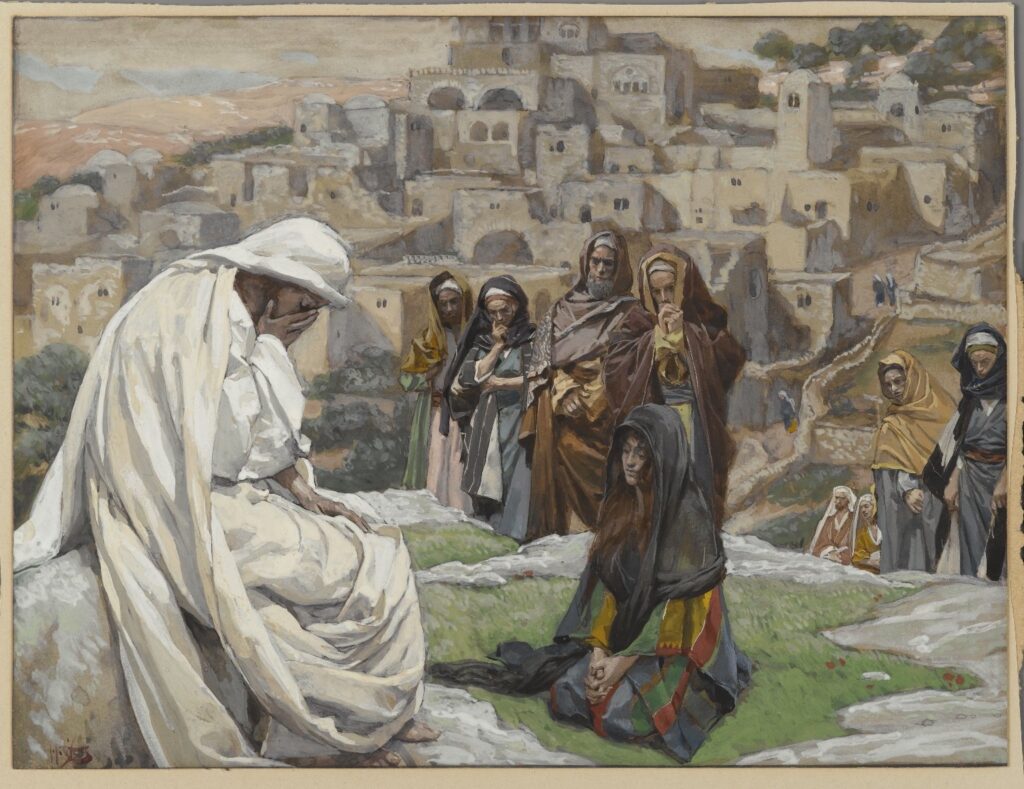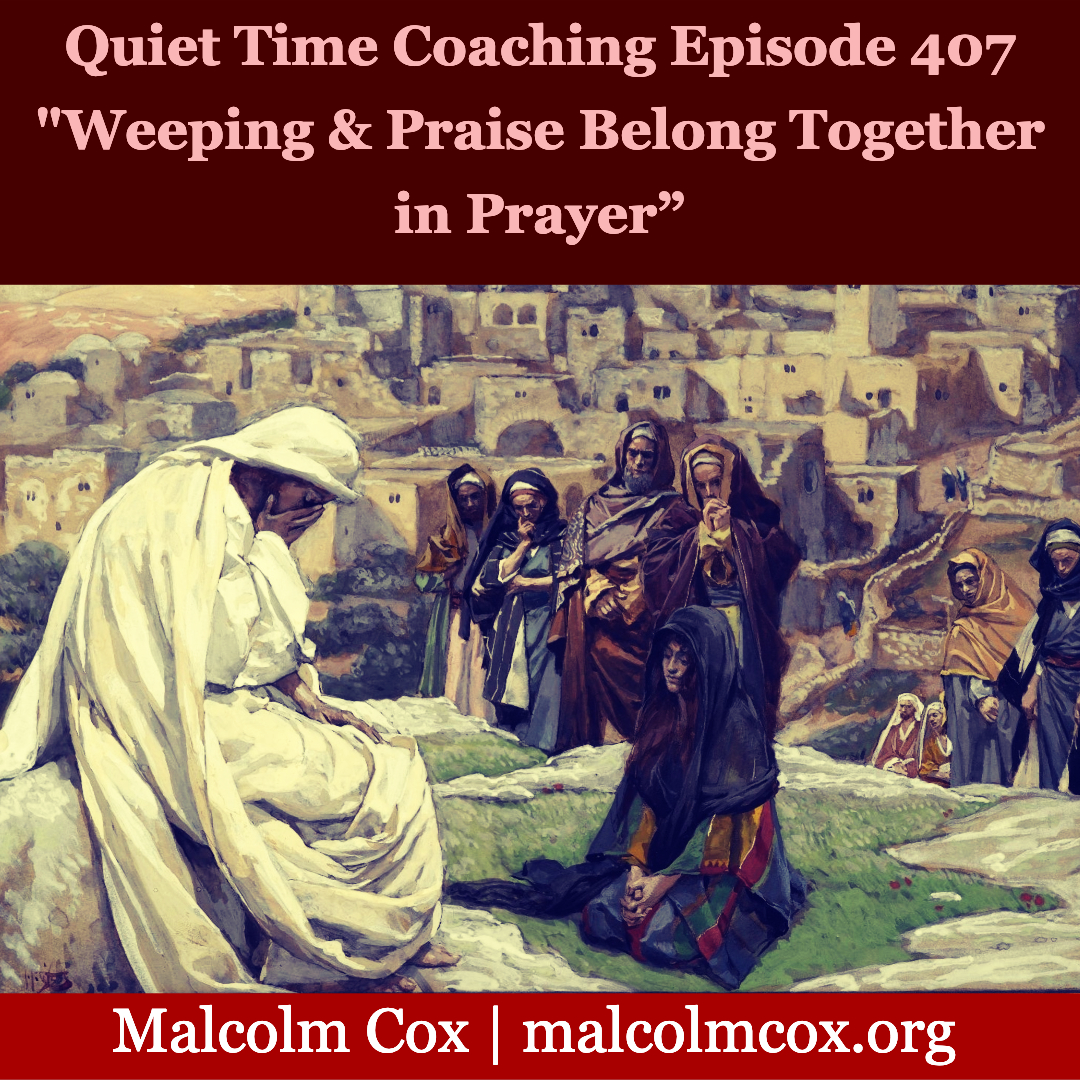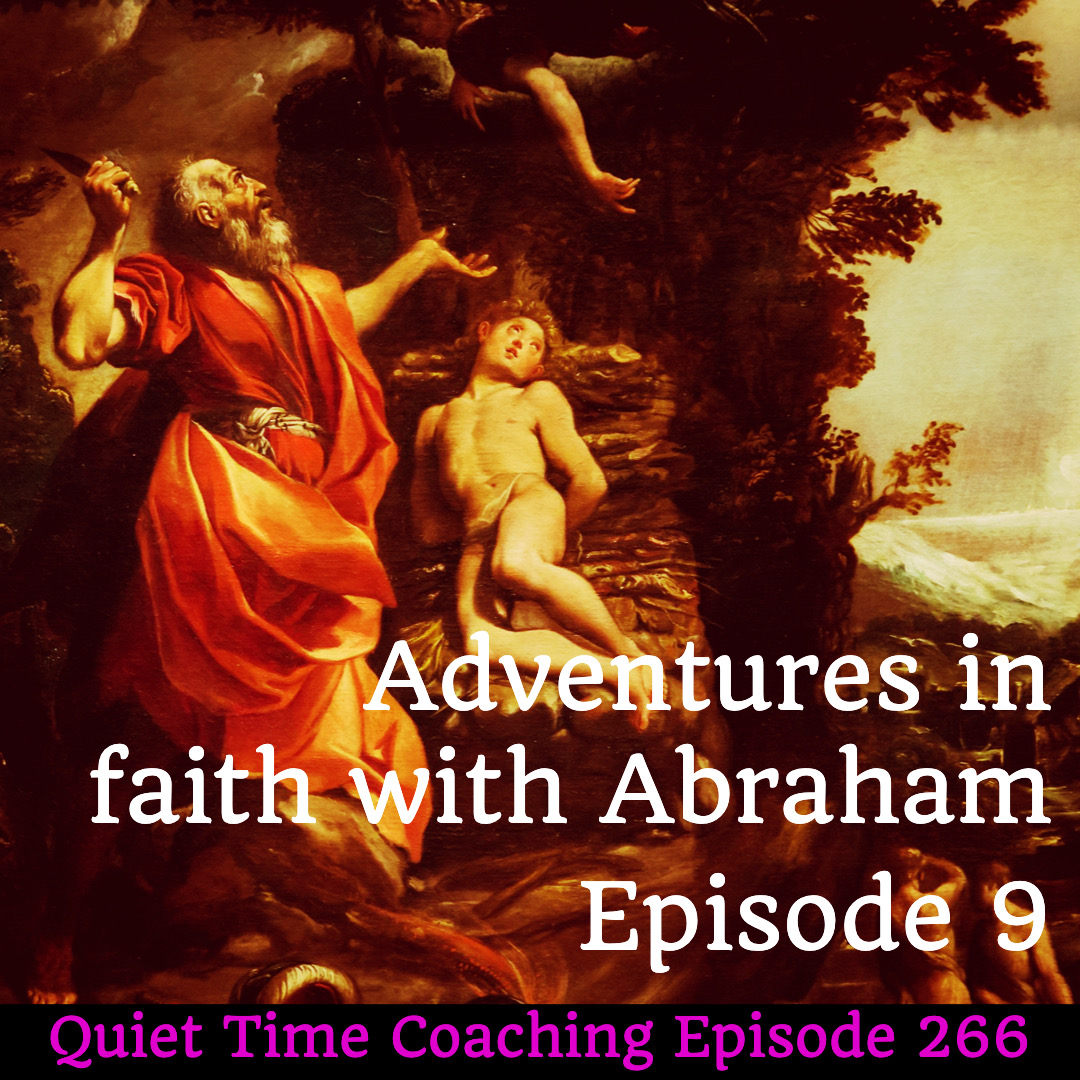
Introduction
We celebrate Palm Sunday in a few days. It is one of only a few incidents recorded in all four gospels (Matthew 21, Mark 11, Luke 19 and John 12). I have mulled over which text to use for the Sunday lesson, finally settling on the account in Luke 19. I have chosen this one because it contains the blend and contrast of extravagant full-voiced praise, and the embracing of the tragic. Jesus weeps over Jerusalem. It reflects much of what is going on in the world today, and even in my own life.

The Text
““Blessed is the king who comes in the name of the Lord!” “Peace in heaven and glory in the highest!”
Some of the Pharisees in the crowd said to Jesus, “Teacher, rebuke your disciples!” “I tell you,” he replied, “if they keep quiet, the stones will cry out.” As he approached Jerusalem and saw the city, he wept over it and said, “If you, even you, had only known on this day what would bring you peace—but now it is hidden from your eyes. The days will come upon you when your enemies will build an embankment against you and encircle you and hem you in on every side. They will dash you to the ground, you and the children within your walls. They will not leave one stone on another, because you did not recognise the time of God’s coming to you.”” (Luke 19:38–44 NIV11)

Jesus Wept (Jésus pleura) – James Tissot
Comment
What are we learning from Jesus? What are we learning about prayer?
- Jesus is not overly impressed with the praise of the crowd. It is appropriate that he is honoured, but it does not puff up his ego. He is still capable of feeling compassion for the people who would soon suffer.
- Even though Jesus is experiencing some deeply troubling feelings about the fate of Jerusalem, he does not dismiss the praise. He allows the crowd to rejoice and participates in it.
- Jesus can see what is coming, and does not argue against God’s judgement, but he takes no pleasure in that judgement.
- Jesus does not care how he looks to other people. He is authentic. He is not embarrassed to weep in front of his followers, the crowd or his opponents. Others have wept in the gospel (widow of Nain, Jairus’ family & others), now it it is his turn.
Perspective
Sadness is temporary. “For his anger lasts only a moment, but his favour lasts a lifetime; weeping may stay for the night, but rejoicing comes in the morning.” (Psalm 30:5 NIV11). The length of the ‘temporary’ time might be longer than we would like, but, at some point, it will end. This why we are able to “Rejoice always, pray continually, give thanks in all circumstances; for this is God’s will for you in Christ Jesus.” (1 Thessalonians 5:16–18 NIV11). Not because the cause of the sorrow is over, but because it will, one day, by faith, be over.
Ultimately, it is the cross and the resurrection which convince us that it is possible to praise and to weep. Let me offer you two quotes from the book, ‘Evoking Lament’ by Eva Harasta and Brian Brock.
‘ The cross reveals that lament has been included into God’s relational reality; the resurrection reveals that praise has been included in God’s relational reality, and that it is included not as a triumph over lament, but as its equal counterpart.’
‘Any notion of prayer that excludes praise ignores the glory of God and the possibilities for happiness in the world; a notion of prayer that excludes lament disregards the unredeemed state of the world, the judgement of God, and his despair about the world. A triumph of praise over lament obscures God’s capacity to suffer and his acts of judgement. A triumph of lament over praise turns lament into embittered blasphemy.’
Applications
- Pray with empathy and compassion
- Intercede in prayer
- Hold praise and lament together in prayer
Conclusion
The incident of Jesus weeping over Jerusalem can inspire us to pray with greater empathy, compassion and intercession. It reminds us of the power of prayer and the importance of seeking God’s heart for the needs of others.
Some final questions for this week:
- What comes more easily? Praise or lament?
- What value is there for you in lamenting in prayer?
- What will help you connect with the conviction and compassion of Jesus for those who opposed him?
Please add your comments on this week’s topic. We learn best when we learn in community.
Do you have a question about teaching the Bible? Is it theological, technical, practical? Send me your questions or suggestions. Here’s the email: malcolm@malcolmcox.org.
If you’d like a copy of my free eBook on spiritual disciplines, “How God grows His people”, sign up at my website: http://www.malcolmcox.org.
Please pass the link on, subscribe, and leave a review.
“Worship the LORD with gladness; come before him with joyful songs.” (Psalms 100:2 NIV11)
God bless, Malcolm

